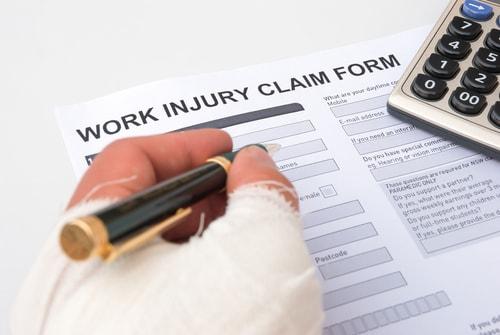Filing a Permanent Partial Disability Workers’ Compensation Claim
 Illinois is one of many states that require companies to carry insurance benefits for their employees to cover them in the unfortunate event of a workplace injury. Even if all the required safety measures are taken, accidents can and do happen on the job. Depending on the type of industry, injuries suffered can range from minor sprains or bruises to spinal cord damage. In some circumstances, a worker may never fully recover and is therefore entitled to permanent partial disability (PPD). Understanding the workers’ compensation process is integral to receiving benefits and moving on with your life.
Illinois is one of many states that require companies to carry insurance benefits for their employees to cover them in the unfortunate event of a workplace injury. Even if all the required safety measures are taken, accidents can and do happen on the job. Depending on the type of industry, injuries suffered can range from minor sprains or bruises to spinal cord damage. In some circumstances, a worker may never fully recover and is therefore entitled to permanent partial disability (PPD). Understanding the workers’ compensation process is integral to receiving benefits and moving on with your life.
Illinois Workers’ Comp Laws
According to Illinois employment law, employers (or their insurers) are obligated to pay permanent partial disability (PPD) benefits to an injured employee who sustained disfigurement or impairment but can still work up to a certain capacity. Permanent total disability (PTD) benefits are paid to an employee who is totally and permanently unable to work.
If a worker has lost the total use, or partial use, of a body part (hand, leg, arm, ear, eye) or has lost partial use of his or her body as a whole, he or she may have the right to permanent disability benefits. In certain situations, a worker may be able to switch jobs within the same company. If the new job’s wages are less than the pre-injury job, the employee is entitled to receive a wage differential.
Temporary disability benefits are paid at 66.67 percent of an employee’s average weekly wage, up to a maximum set by the state. If a person is disfigured, he or she can obtain up to 162 weeks of benefits at 60 percent of his or her average weekly salary. Also, it is important to know that workers’ compensation benefits are not taxable.
Another way a worker can collect a weekly permanent disability benefit is based on 60 percent of his or her average weekly wage (AWW). Illinois employment law sets the number of weeks of compensation for approximately 25 different body parts. An individual would multiply that weekly number for the affected body part(s) by 60 percent of his or her AWW to calculate the PPD benefit. If a claim turns into a dispute, the Illinois Workers’ Compensation Commission (IWCC) enforces the state’s workers’ compensation laws and protects the rights of an employee.
What Is a Permanent Partial Disability?
A permanent partial disability (PPD) is an impairment that did not go away after you recovered from a workplace injury or illness. PPD claims are the most common type of workers’ compensation cases, making up over half of all workers’ comp claims nationwide. There is a wide variety of injuries that are classified as PPD, including:
- Carpal Tunnel Syndrome
- Hearing loss
- Vision loss
- Knee damage
- Back injury
- Nerve damage
- Post traumatic stress disorder (PTSD)
Who Can File a PPD Claim?
Before an employee can qualify for PPD benefits, he or she must do all of the following:
- Meet the eligibility requirements for workers’ compensation.
- File a workers’ comp claim.
- Follow the rules for seeking medical care from a workers’ comp treating doctor.
An individual can continue medical treatment until he or she has either fully recovered or a physician states that the condition is not likely to get better, even with more treatment. This is typically referred to as “maximal medical improvement” (MMI). Once it is confirmed that an individual is at MMI, his or her employer and/or the IWCC can begin to assess if the worker is entitled to permanent disability benefits.
Contact a Will County Workplace Injury Lawyer
Even in the safest settings, accidents can still happen. Suffering an injury on the job can affect your livelihood if you are no longer able to work. In some cases, you may be able to perform a different job depending on your type of injury. If you or your loved one is hurt because of a workplace accident, you may be able to recover damages for lost wages and medical bills. You should speak to an experienced Joliet workers’ compensation attorney right away to learn about your options. Call our office today at 815-727-0100 to schedule a free consultation.
Source:
https://www2.illinois.gov/sites/iwcc/Pages/default.aspx
 815-727-0100
815-727-0100













